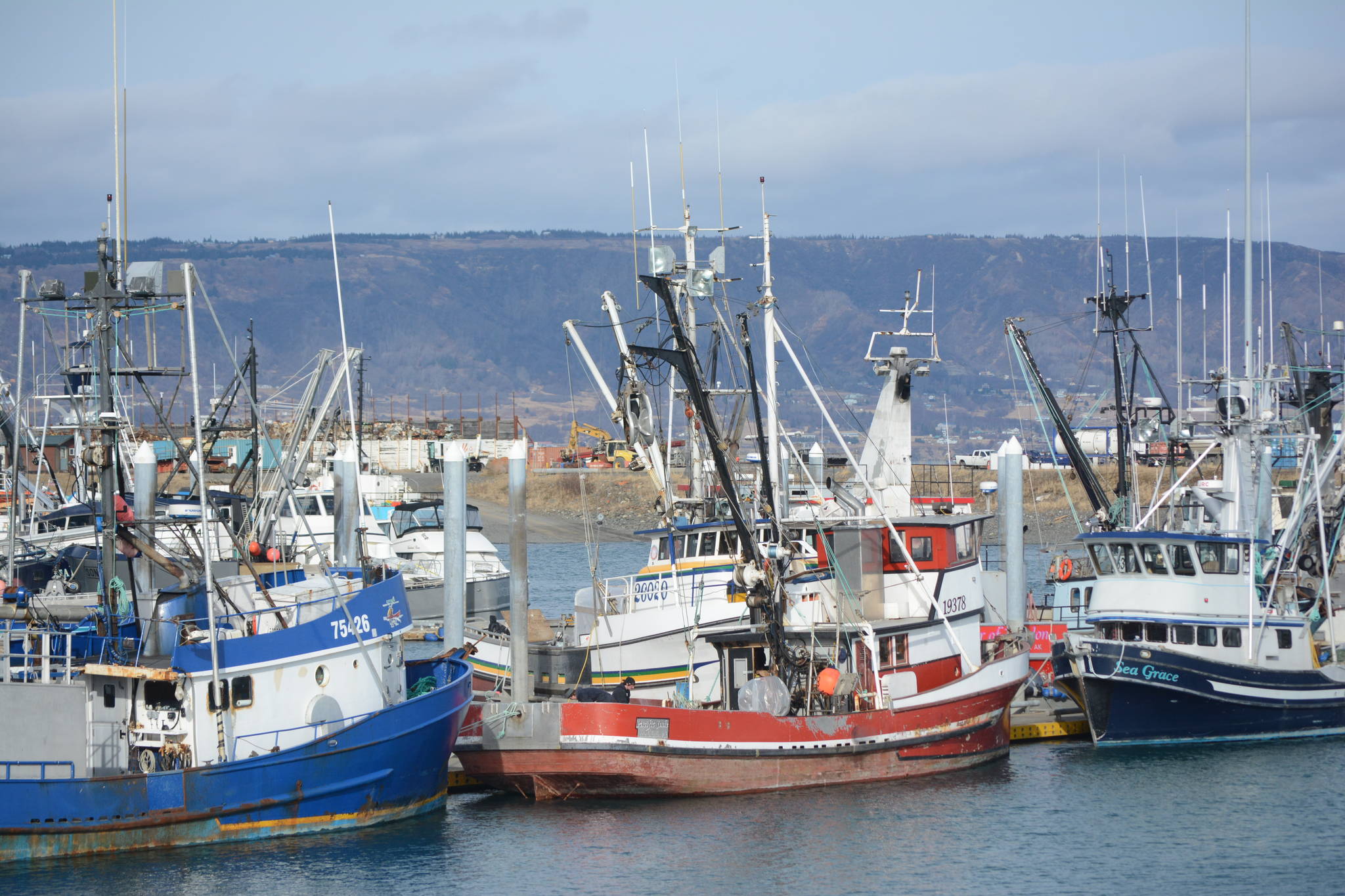The North Pacific Fisheries Management Council held its October meeting in Homer this month after a 36-year absence, the first since Clem Tillion’s last stint as Council chairman.
According to a memo from Executive Director David Witherell, the Council discussed the next steps for managing the overcapitalized halibut fishery, reviewed applications for foreign permits for the operation of a Japanese trawler and a Taiwanese mothership, discussed salmon troll-fishery landings pursuant to its salmon fishery management plan, took final action to approve a framework procedure for setting dates for the Tanner crab fishery, and increased the Gulf of Alaska pollock optimum yield level by 40,000 tons.
Not mentioned in the memo is the meeting of the Salmon Task Force that took place.
The task force is an advisory committee set up to respond to a successful lawsuit by United Cook Inlet Drift Association and Cook Inlet Fishermen’s Fund to get federal oversight over the Upper Cook Inlet commercial salmon fishery in order to meet compliance with the federal Magnuson-Stevens Act (MSA).
According to the Council website, the committee was created to “assist in the development in an amendment that will incorporate EEZ (exclusive economic zone) waters” into the federal Fisheries Management Plan.
That effort appears to be faltering and is resulting in another flurry of court filings.
At issue is UCIDA’s and other UCI commercial salmon fishermen’s contention that the State of Alaska’s management of the fishery, much of which takes place in federal waters (more than 12 miles from shore), does not follow all of the MSA 10 National Standards, primarily by not managing for maximum sustained yield, not using the best scientific data available for conservation and management, not using a resource to the maximum national benefit, and not following the guidelines for managing essential fish habitat.
When the committee met in Homer this month, things apparently came to a stalemate, according to David Martin, president of UCIDA.
“We’re still at an impasse, because the directions from the Council and NMFS is contrary to what the 9th Circuit ruling is.”
Martin said that task force guidelines from the National Marine Fisheries Service say that they do not have to create a management plan for the the entire fishery, just in the EEZ, which they define as south of Kalgin Island.
That is contrary to the court ruling that NMFS was responsible for the fishery throughout its entire range.
“They mentioned ‘every drop of water,’ and that NMFS should not be able to wriggle out of its duty to manage the entire fishery,” he said.
That has led to a flurry of court filings.
“Where we’re at now is that we’ve filed an enforcement order in District Court,” which has oversight over the 9th Circuit, Martin said.
That filing mentions nearly three years have passed since the 9th Circuit issued its order, and that no management plan is forthcoming.
In its court filing, NMFS replied that “UCIDA’s motion asks this court to issue an order requiring the government to usurp the State’s sovereign right to manage salmon in State waters.”
It went on: “Contrary to UCIDA’s assertion, the Ninth Circuit ordered nothing even remotely justifying the extraordinary relief UCIDA now seeks. This requested relief is far removed from the live controversy in this case, has not been briefed as part of this litigation, and is not ripe for decision.
“Further, issuing the ‘declaratory ruling’ that UCIDA requests would require this court to first speculate which of three draft plan options the North Pacific Council (‘the Council’) might adopt, and then speculate whether that option would comport with the requirements of the Magnuson-Stevens Act.”
UCIDA is asking the court to define the fishery, which Martin contended had already been done in the original ruling.
If and when there is a fishery management plan, it would be drafted by the Council with direction from NMFS and submitted to the Secretary of Commerce for approval.
There are no plans for another task force meeting until at least April, another bone of contention brought up with the courts in UCIDA’s latest filings.
Cristy Fry can be reached at realist468@gmail.com



